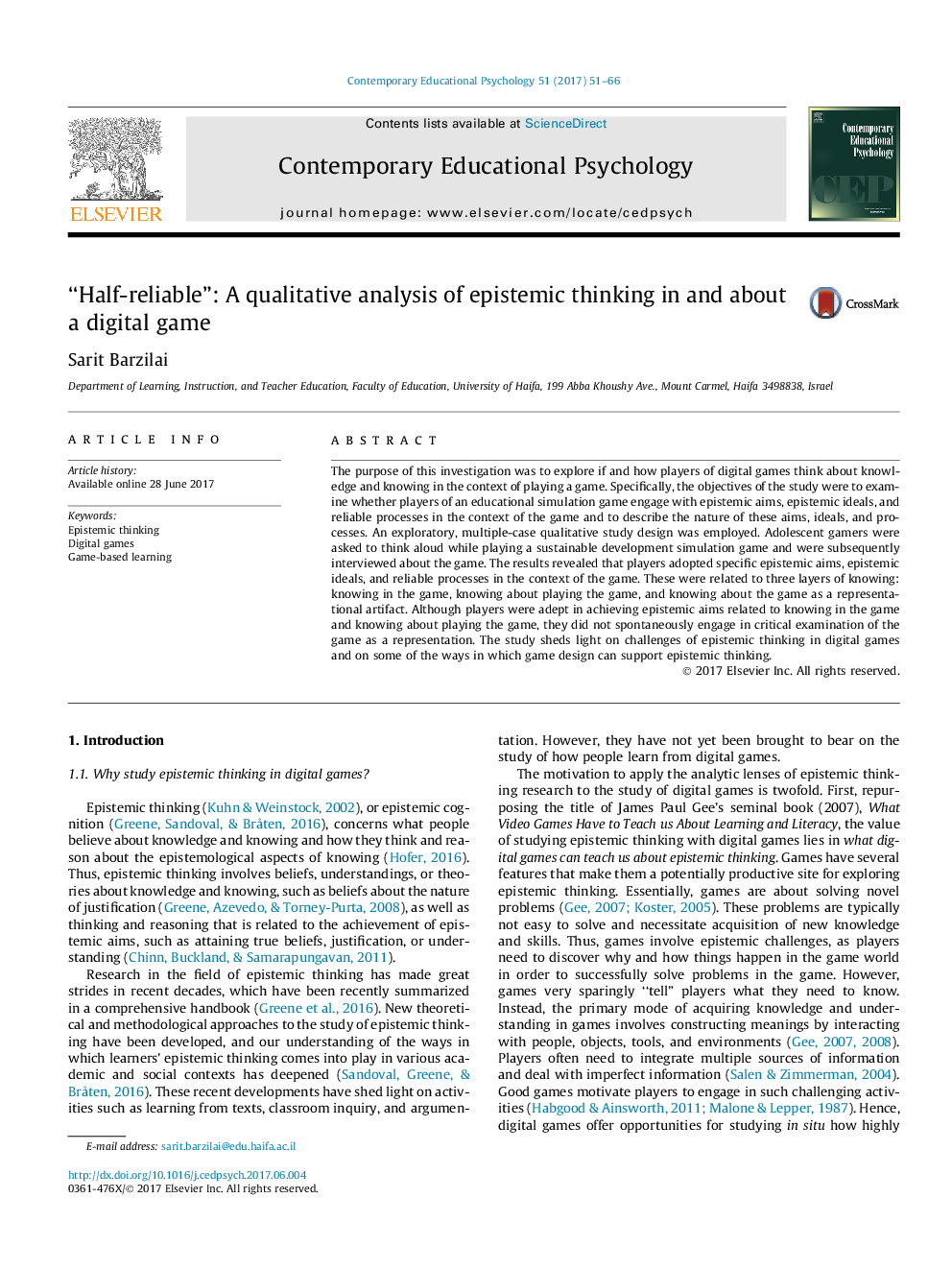| Article ID | Journal | Published Year | Pages | File Type |
|---|---|---|---|---|
| 4937844 | Contemporary Educational Psychology | 2017 | 16 Pages |
Abstract
The purpose of this investigation was to explore if and how players of digital games think about knowledge and knowing in the context of playing a game. Specifically, the objectives of the study were to examine whether players of an educational simulation game engage with epistemic aims, epistemic ideals, and reliable processes in the context of the game and to describe the nature of these aims, ideals, and processes. An exploratory, multiple-case qualitative study design was employed. Adolescent gamers were asked to think aloud while playing a sustainable development simulation game and were subsequently interviewed about the game. The results revealed that players adopted specific epistemic aims, epistemic ideals, and reliable processes in the context of the game. These were related to three layers of knowing: knowing in the game, knowing about playing the game, and knowing about the game as a representational artifact. Although players were adept in achieving epistemic aims related to knowing in the game and knowing about playing the game, they did not spontaneously engage in critical examination of the game as a representation. The study sheds light on challenges of epistemic thinking in digital games and on some of the ways in which game design can support epistemic thinking.
Related Topics
Social Sciences and Humanities
Psychology
Applied Psychology
Authors
Sarit Barzilai,
